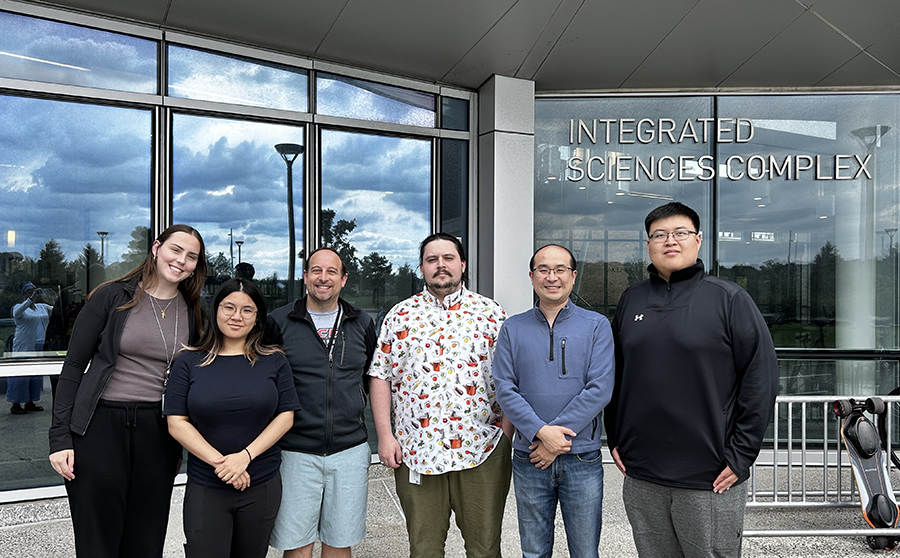- Home
- News
- Recent News
- Slowing the Growth of Advanced Prostate Cancer with Exercise
UMass Boston Research Shows Exercise May Slow Growth of Advanced Prostate Cancer
Physical activity may help slow the growth of an aggressive form of prostate cancer according to a recent study published in the journal Medicine & Science in Sports & Exercise.

A new interdisciplinary study at UMass Boston, led by Principal Investigator Kai Zou, PhD, associate professor of exercise and health sciences in the Manning College of Nursing and Health Sciences, has found that exercise may play a powerful role in managing castration-resistant prostate cancer (CRPC).
CRPC, an aggressive and treatment-resistant form of the disease, poses a significant clinical challenge because it no longer responds to conventional hormone therapies. Remarkably, this study found that exercise disrupted many of the same biological pathways that current therapies aim to target.
While previous research has shown a link between physical activity and reduced cancer risk and progression, Zou’s work is unique in that it explores the molecular mechanisms underlying the effect exercise has on advanced prostate cancer. The study used human-derived cells in cancer models to determine how exercise alters tumor biology at the molecular level. Though the study was conducted in mice, it has provided compelling biological evidence that exercise can offer a powerful way to slow down tumor growth in advanced prostate cancer.
“Through our research, we found that exercise altered several key biological processes within the tumors,” said Zou. “The exercise lowered activity in genes that promote cell growth and DNA replication, decreased the hormone signaling that fuels prostate cancer, and reduced expression of genes linked to blood vessel formation, which tumors need to grow.”
This project exemplifies UMass Boston’s strength in interdisciplinary research. Zou collaborated closely with Changmeng Cai, associate professor of biology and a leading expert in prostate cancer biology. Cai played a vital role in shaping the study’s design and molecular analyses. The project also benefited from support from the Genomics Core Facility and the Center for Personalized Cancer Therapy.
Student researchers were integral to the project’s success, with key contributions from exercise and health sciences PhD candidate Nicolas Berger and recent graduate Benjamin Kugler, PhD. Undergraduate researchers who worked with Zou on the project include Paul Nguyen and Meaghan Anderson, both of whom received awards from UMass Boston’s Undergraduate Research Fund (URF).
“While this is still early-stage research,” Zou noted, “it has given us important insights into how physical activity may help slow tumor progression and could be used as a supportive, non-invasive strategy in the management of advanced prostate cancer.”